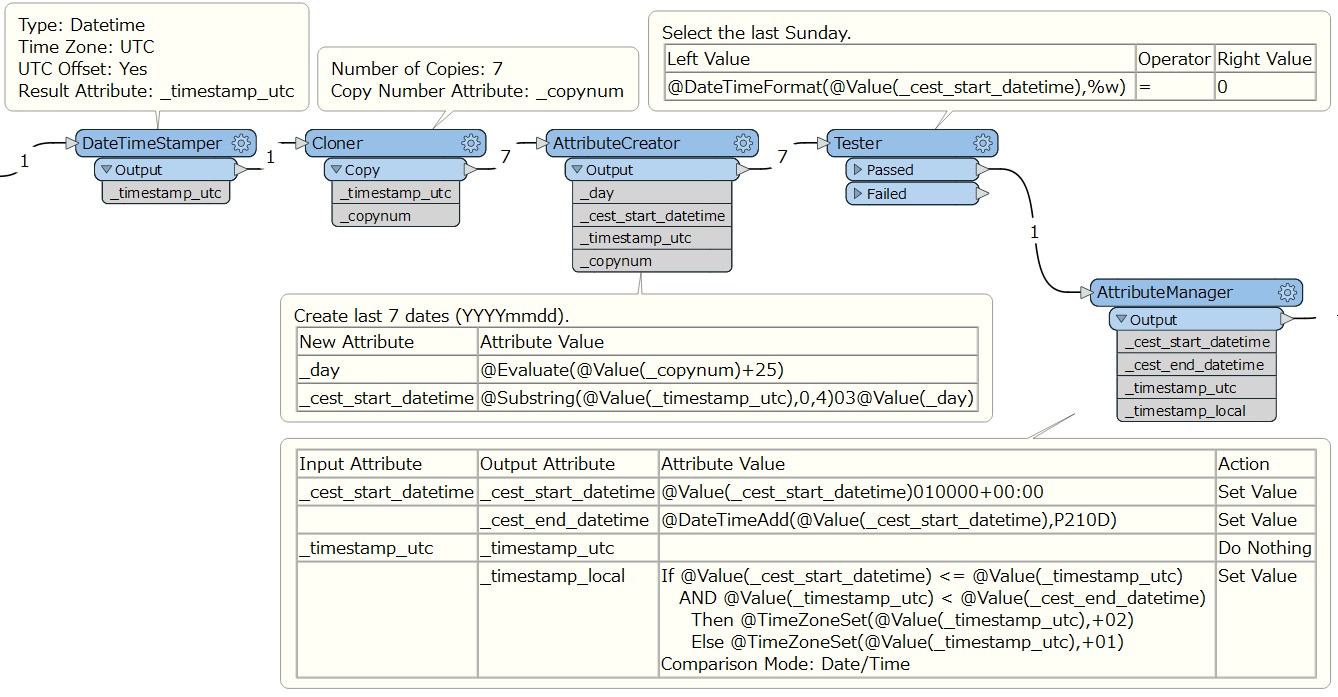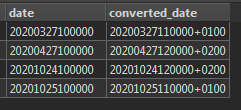Hi,
I'm trying to convert UTC datetimes to CET/CEST but can't find the way of getting a datetime that takes into account the Daylight Saving Time differences. The local settings of the DateTimeStamper or @TimeZoneSet function are of no use because the workspace is run in an FME Server where the local time is UTC.
Thanks a lot in advance!
Francisco










